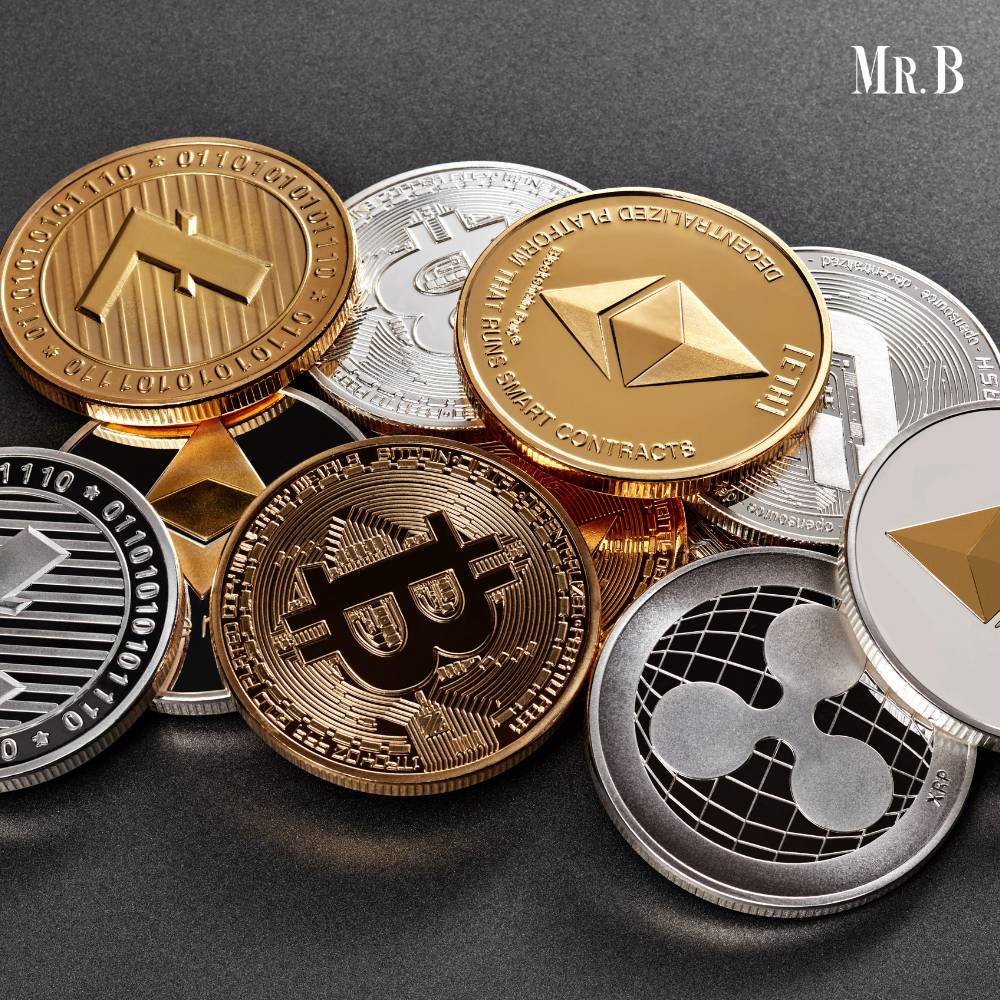Exploring the Various Types of Cryptocurrencies: A Comprehensive Guide
- Category: Finance

In recent years, the cryptocurrency market has experienced exponential growth, offering a wide array of digital assets for investors and enthusiasts alike. Understanding the different types of cryptocurrencies is crucial for navigating this dynamic and evolving landscape. In this article, we will delve into the various types of cryptocurrencies, their features, and their potential applications.
Types of Cryptocurrencies
1.Bitcoin (BTC):
Bitcoin, often referred to as the pioneering types of cryptocurrencies, was created in 2009 by an anonymous individual or group known as Satoshi Nakamoto. It operates on a decentralized network called blockchain and serves as a digital alternative to traditional currencies. Bitcoin is widely recognized as a store of value and a medium of exchange, making it the most prominent type of cryptocurrencies.
2.Ethereum (ETH):
Ethereum is a decentralized platform that enables the creation of smart contracts and decentralized applications (DApps). Launched in 2015 by Vitalik Buterin, Ethereum introduced the concept of programmable blockchain, allowing developers to build a wide range of applications on its platform. Ether (ETH) is the native cryptocurrency of the Ethereum network and is used to facilitate transactions and execute smart contracts.

3.Ripple (XRP):
Ripple aims to facilitate fast and low-cost international money transfers by leveraging blockchain technology. Unlike Bitcoin and Ethereum, which are primarily decentralized networks, Ripple operates on a more centralized platform. XRP, the native cryptocurrency of the Ripple network, is designed to facilitate cross-border payments and remittances, making it an attractive option for financial institutions and banks.
4.Litecoin (LTC):
Litecoin, often referred to as the “silver to Bitcoin’s gold,” was created in 2011 by Charlie Lee, a former Google engineer. It is a peer-to-peer cryptocurrency that enables instant, near-zero cost payments to anyone in the world. Litecoin differs from Bitcoin in its hashing algorithm and transaction confirmation time, offering faster transaction speeds and lower fees.
5.Cardano (ADA):
Cardano is a blockchain platform that aims to provide a more secure and scalable infrastructure for the development of decentralized applications and smart contracts. Founded by Charles Hoskinson, one of the co-founders of Ethereum, Cardano utilizes a research-driven approach to address scalability, interoperability, and sustainability issues. ADA is the native cryptocurrency of the Cardano platform and is used for transactions and staking.
6.Stellar (XLM):
Stellar is a decentralized payment network that enables fast and low-cost cross-border transactions. Founded by Jed McCaleb, a co-founder of Ripple, Stellar focuses on facilitating peer-to-peer payments and remittances for individuals and institutions. Lumens (XLM) serve as the native cryptocurrency of the Stellar network and are used to facilitate transactions and maintain network security. This one is known for the security it provides in the types of cryptocurrencies market.

7.Polkadot (DOT):
Polkadot is a multi-chain blockchain platform that enables interoperability between different blockchains. Founded by Dr. Gavin Wood, one of the co-founders of Ethereum, Polkadot aims to facilitate the seamless transfer of data and assets between different blockchains. DOT is the native cryptocurrency of the Polkadot network and is used for governance, staking, and bonding.
8.Chainlink (LINK):
Chainlink is a decentralized oracle network that connects smart contracts with real-world data. Founded by Sergey Nazarov, Chainlink aims to enable smart contracts to securely interact with external data sources, APIs, and payment systems. LINK is the native cryptocurrency of the Chainlink network and is used to incentivize node operators to provide accurate data and maintain network integrity.
9.Dogecoin (DOGE):
Dogecoin started as a meme-inspired cryptocurrency created by software engineers Billy Markus and Jackson Palmer in 2013. Despite its humorous origins, Dogecoin has gained popularity as a digital currency for tipping and charitable donations. It operates on a decentralized network similar to Bitcoin and Litecoin and has a passionate community of supporters.
9.Binance Coin (BNB):
Binance Coin is the native cryptocurrency of the Binance exchange, one of the largest cryptocurrency exchanges in the world. Founded by Changpeng Zhao, Binance Coin was initially launched as an ERC-20 token on the Ethereum blockchain but later migrated to Binance’s own blockchain, Binance Smart Chain. BNB is used to pay for trading fees, and transaction fees, and participate in token sales on the Binance platform.
FAQs:

Q.1. What are the different types of cryptocurrencies?
There are various types of cryptocurrencies, including Bitcoin, Ethereum, Ripple, Litecoin, Cardano, Stellar, Polkadot, Chainlink, Dogecoin, and Binance Coin, each with its unique features and applications.
Q.2. How can I invest in different types of cryptocurrency?
You can invest in different types of cryptocurrencies by purchasing them on cryptocurrency exchanges, such as Binance, Coinbase, or Kraken. It’s essential to conduct thorough research and consider factors such as security, liquidity, and fees before investing.
Q.3. What factors should I consider when choosing a cryptocurrency to invest in?
When choosing a cryptocurrency to invest in, consider factors such as the project’s technology and development team, its use case and potential for adoption, market liquidity, regulatory environment, and overall market sentiment.
Q.4. Are all types of cryptocurrency decentralized?
No, not all types of cryptocurrency are decentralized. While some cryptocurrencies, such as Bitcoin and Ethereum, operate on decentralized networks, others, like Ripple, may have more centralized governance structures.
Q.5. How can I store different types of cryptocurrency securely?
You can store different types of cryptocurrencies securely using cryptocurrency wallets, such as hardware wallets, software wallets, or mobile wallets. It’s essential to choose a reputable wallet provider and follow best practices for securing your private keys and passwords.
Conclusion:
Understanding the various types of cryptocurrency is crucial for investors and enthusiasts looking to navigate the complex and rapidly evolving crypto market. Each type of cryptocurrency offers unique features and applications, catering to different use cases and preferences. By staying informed and conducting thorough research, individuals can make informed decisions when investing in cryptocurrencies and harness their potential for financial growth and innovation.
Curious to learn more? Explore this Article on: Mr. Business Magazine







